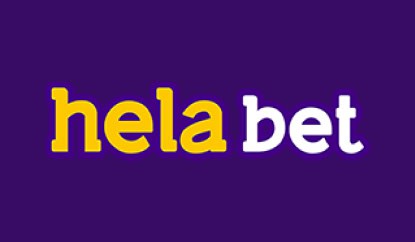Blackjack is a popular casino game in Kenya that offers you a nice blend of skill, luck, strategy, and simple rules. Unlike most games of choice, the decisions you make during a blackjack game can significantly affect the outcomes. These strategic choices can minimize house edge and improve your chances of winning. In this guide, we will show you how to play blackjack along with essential strategies, common mistakes to avoid, and more.
What is blackjack?
Also known as 21, blackjack is a card game where you play against the dealer. You can play the game in both land-based and online casinos. In the subsequent sections, you will learn the basic blackjack rules and terminology.
Objective of blackjack
Whether you are playing blackjack online or offline, the primary goal is to beat the dealer by having a hand value closer to 21. You can achieve this objective in multiple ways such as:
- Have a higher hand total than the dealer without exceeding 21.
- Force the dealer to bust (go over 21), which leads to an automatic win.
- Get a blackjack (an Ace and any 10 point card, totaling 21).
You should remember that only the dealer’s hand determines the outcome for each player in a blackjack game. Other players’ hands do not affect your outcome. If you effectively manage your hand and make the right decisions based on the dealer’s face up card, your chances of winning will improve.
Blackjack terminology
Before we go deep into the strategies used in a Blackjack casino game, let’s take a look at some key terms.
- Hit – ask for an additional card to increase the value of your hand.
- Stand – keep your current hand and end your turn.
- Double down – double your initial bet in exchange for one and only one additional card.
- Split – if you are dealt two cards of the same value, you can split them into two hands.
- Bust – when your hand exceeds 21, resulting in an automatic loss.
- Push – when both you and the dealer have hands of the same value, resulting in a tie.
- Surrender – forfeit half of your bet in exchange for ending the round early.
- Insurance – a side bet that the dealer has blackjack when their face up card is an Ace.
Blackjack card values and hand type
In a blackjack table, the value of your hand is the sum of individual cards that you are dealt with. Card values are listed below:
- Number cards (2 to 10) – these cards hold their face value (e.g., a 7 of clubs is worth 7 points).
- Face cards (jack, queen, king) – each face card is worth 10 points.
- Ace – the Ace is a versatile card, worth either 1 or 11 points, depending on which value benefits your hand more.
There are two main types of hands in a blackjack game:
- Soft Hand – a hand that contains an Ace counted as 11. For example, if you have an Ace and a 6, your hand total is a soft 17. A soft hand gives you flexibility because you can hit without the risk of busting.
- Hard Hand – a hand without an Ace, or where the Ace is counted as 1. For example, a 10 and a 7 is a hard 17. Hard hands are riskier because there is no flexibility with the Ace.
Step-by-step guide to playing blackjack
The rules and structure of the game stay the same whether you play blackjack online or offline. In this section, we will take you through each step of the game.
Placing your bets
At the start of a round, you will need to bet or place chips before the cards are dealt. Depending on the specific blackjack casino table, the minimum and maximum bet amount can vary. Here are a couple of tips you should consider:
- Bet within your bankroll – according to gambling experts, you should bet between 1% and 3% of your total bankroll on each hand. This ensures you can play for an extended period without running out of funds too quickly.
- Start small – if you are a beginner, start with smaller bets until you gain more confidence and experience with blackjack games.
The deal
Once all the players on the blackjack game have placed their bets, the dealer shuffles the deck(s) and deals two cards to every player, including themselves. Players’ cards are dealt face up and the dealer takes one face up card and one face down card.
The dealer’s face-up card will help you develop your strategies. For instance, if the dealer shows a low value card (2 to 6), their hand is considered weak. The dealer’s hand is strong if they show a high value card (7 to Ace).
Player decisions
After the cards are dealt, you (and all other players) need to make decisions based on your hand and the dealer’s face up card. Below are the options you get in a blackjack online or offline game:
- Hit – request another card to improve your hand. You can hit as many times as you like as long as your hand does not exceed 21 points.
- Stand – keep your current hand and end your turn. Choose this option if you think your hand is strong enough to beat the dealer.
- Double down – this option lets you double your initial bet and receive exactly one more card. Do this if you have a favorable hand like a 10 or 11.
- Split – if you are dealt with two cards of the same value (e.g., two 7s), you can split them into two separate hands. You can play each hand independently by placing an additional bet equal to your initial one.
- Surrender – some blackjack casinos and games offer this option where you get to receive half your original bet back and end your round.
- Insurance – when the dealer’s face up card is an Ace, you get to make a side bet equal to half of your initial wager, betting that the dealer has blackjack.
Dealer’s turn
Once you and all other players are done making decisions, the dealer takes their turn. They must reveal their hole (face down) card and follow these blackjack rules:
- The dealer must hit until they reach a hand total of at least 17. If their hand totals 16 or less, they must draw another card.
- The dealer must stand on a total of 17 or higher. In most land based and online casinos, if the dealer has a soft 17 (an ace and a 6), they must stand, though some variants require the dealer to hit on soft 17.
If the dealer busts, all the players in the blackjack game win the hand. If the dealer’s hand value is closer to 21 than you, the dealer wins. If you and the dealer have the same hand value, it is called a push (a tie).
Payouts
Payouts in a blackjack online game (or offline) are very straightforward. Let’s look at what you can win in different situations:
- Regular win – a standard winning hand pays out 1:1. For example if you bet $20 and win, you receive $20 in winnings.
- Blackjack – if you are dealt a natural blackjack (an Ace and a 10 point card), you receive a payout of 3:2. For example, a $20 bet would earn $30 in winnings.
- Insurance payout – if you place an insurance bet and the dealer has blackjack, you receive a 2:1 payout on your insurance wager. It is worth noting that you lose your original bet unless you also have blackjack.
Blackjack strategies for success
Now that you know how to play blackjack and the basic rules of the game, it is time to move on to more sophisticated strategies. Let’s take a look at a few tips and strategies.
Basic strategy charts
Basic strategy charts provide you with guidance on optimal decision-making based on your hand and the dealer’s face up card. These charts are based on mathematical probabilities and can help you reduce the house edge to as low as 0.5%. Some key strategies include:
- Hit when you have a hand total of 12 to 16, and the dealer is showing a 7 or higher.
- Stand when you have a hand total of 17 or higher, especially if the dealer has a weak upcard (2 to 6).
- Always split Aces and 8s. Splitting Aces gives you a strong chance of hitting blackjack, and splitting 8s avoids playing a weak hand of 16.
Card counting basics
This strategy involves tracking the ratio of high to low cards that are remaining on the deck. This gives you an idea of whether the remaining cards in the blackjack game are favorable or unfavorable. Though this strategy can reduce the house edge further, you need a significant amount of practice and concentration. Card counting is not illegal per se, but casinos frown upon this strategy and may ask you to leave if you are caught.
Let’s look at the most common card-counting method called the Hi-Lo system:
- Assign a value of +1 to low cards (2 to 6), 0 to neutral cards (7 to 9), and -1 to high cards (10 to Ace).
- As cards are dealt, keep a running count. A positive count indicates that more high cards are left in the deck, which is favorable for you.
Managing your bankroll
Proper bankroll management is crucial in blackjack, whether you are playing online or offline. This ensures that you can keep playing without running out of money too quickly. Below are some key bankroll management tips.
- Set a budget – determine how much money you are willing to lose before you start playing, and stick to that limit.
- Bet 1% to 3% of your bankroll – by keeping your bets small, you can survive losing streaks and play for longer.
- Adjust your bets – increase your bets slightly when you are on a winning streak and reduce them when you are losing. This strategy allows you to capitalize on favorable streaks without risking too much.
Common mistakes to avoid
Many players make costly mistakes when playing blackjack games at online and offline casinos in Kenya. Avoiding these pitfalls can help you become a more successful player:
- Overbetting – betting more than you can afford to lose is a common mistake. Always stick to your bankroll limits.
- Ignoring basic strategy – some players rely on gut feelings or intuition, but blackjack is a game of math. Following basic strategy charts can significantly improve your chances of winning.
- Taking insurance – while insurance might seem like a safe bet when the dealer shows an Ace, it is generally not profitable in the long run. The odds of the dealer having blackjack are not high enough to justify this bet.
- Chasing losses – when on a losing streak, it is tempting to increase your bets in an attempt to win back what you have lost. However, this can quickly lead to larger losses. Stick to your strategy and avoid emotional decisions.









